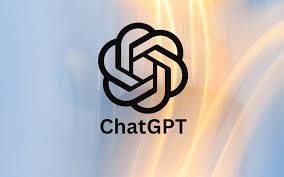Summary :
- Global blackout affected ChatGPT, Sora, and related APIs on June 10, 2025.
- Outage reports peaked at over 2,000 incidents globally, with India hit hard.
- Partial recovery began after hours of downtime; voice mode lagged longest.
- Cultural dependence on AI became evident through user panic and memes.
At around 3:00 AM ET / 2:30 PM IST on Tuesday, users of OpenAI’s flagship product, ChatGPT, began encountering vague error messages, loading loops, and a chilling absence of responses. What began as scattered complaints quickly escalated into a full-scale outage affecting users in India, the United States, Europe, Southeast Asia, and beyond.
The failure impacted not only ChatGPT’s free and paid versions but also Sora, OpenAI’s advanced video tool, and key developer APIs used across enterprise platforms and educational tools.
By mid-afternoon, Downdetector, a site that monitors real-time outages, recorded more than 2,000 incident reports per minute from frustrated users worldwide.
ALSO READ: In a Race Against Time, BigBasket Bets on 10-Minute Food Deliveries to Win India’s Urban Appetite
OpenAI Scrambles to Respond, Social Media Reacts
As the outage unfolded, OpenAI updated its system status page, confirming what many had feared: a “major incident” was in progress. While no specific cause was immediately disclosed, the company stated it was investigating “elevated error rates” and degraded performance across its services.
Within a few hours, limited functionality resumed, though voice mode — a key feature for premium users — remained unavailable until later in the evening.
Meanwhile, social media lit up with anxious and sarcastic commentary. On Reddit and X (formerly Twitter), hashtags like #ChatGPTDown and #AIpocalypse trended globally. Some users posted memes depicting students weeping over missed deadlines, while others jokingly asked, “Am I supposed to use my brain now?”
The moment was humorous but revealing — a mirror held up to society’s growing emotional and professional reliance on artificial intelligence.
What Caused the Outage? Theories and Fallout
As of now, OpenAI has not publicly shared a technical root cause. Industry experts speculate the issue may have stemmed from infrastructure overload or database failures, possibly triggered by a spike in API calls or misconfigured updates.
This isn’t the first time OpenAI has faced large-scale outages — but the timing and scope of Tuesday’s incident made it one of the most disruptive in recent memory.
For users like software developers, educators, marketers, and students, the downtime wasn’t just a digital hiccup — it was a brake on productivity. Entire workflows, research processes, and content plans were paused or derailed.
Case Study: When the Essay Writer Vanishes
Ravi Srivastava, a college student in Mumbai, faced a familiar deadline on Tuesday evening. With his final literature paper on Rabindranath Tagore due, he turned to ChatGPT as he had all semester — seeking structure, clarity, and argumentation.
But this time, instead of nuanced prose, he saw: “Something went wrong.” Again. And again.
With little time and no assistance, he scrambled to Google Bard and peer inputs. His eventual submission lacked the finesse ChatGPT often brought to his work. “It felt like I lost my co-writer,” Ravi said. “It wasn’t just a tool — it was a creative partner.”
His professor’s feedback confirmed it: “Insightful idea, weak organization.” He received a B-, down from the A-range he had become accustomed to.
An Increasingly Fragile Digital Dependency
This outage underscored a growing truth in the digital age: our dependence on AI is no longer optional or superficial. ChatGPT and similar platforms are not merely software — they’re embedded infrastructure, shaping productivity, education, media, and even mental health.
As the world leans harder into automation and AI companionship, robust failover systems, offline capabilities, and multi-platform redundancy are becoming not just helpful — but essential.
Whether this outage serves as a wake-up call for digital resilience or a passing blip in AI’s march forward, one thing is clear: a day without ChatGPT is no longer just an inconvenience — it’s a disruption of life itself.



